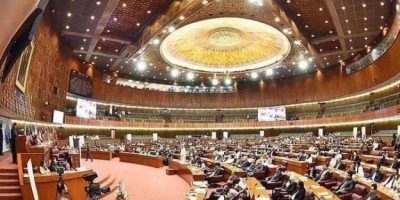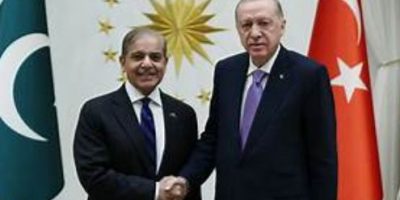Speakers highlight need of multi-stakeholder engagement to achieve SDGs in After-Covid19 scenario

DNA
Islamabad, AUG 21 – Covid19 demands revisiting the planning and initiatives that aimed to achieve Sustainable Development Goals (SDGs). This revisit is crucial, keeping the fact in view that the pandemic has resulted into new challenges and opportunities that need to be assessed properly as a way forward to achieve the SDGs. The speakers including the parliamentarians serving on SDGs Parliamentary task force, said this while sharing their views with the participants at an online dialogue ‘COVID-19 and Pakistan’s SDG Agenda’ organized by the Sustainable Development Policy Institute (SDPI), in collaboration with Nestle Pakistan here on Friday.
Convener, Parliamentary Task Force on SDGs, Riaz Fatyana, while highlighting the overall impact of Covid19, said that education is the area that has been worst affected. He said that special focus is required to get education sector revived. He said that reopening of schools is being expected in mid September, depending on COVID-19 situation. On one hand we are mindful of the safety and health of our children. On other hand, we fear an increase in the number of out of school children. It is a challenge to maintain a subtle balance between the two situations.
He said that it is about time to initiate learning initiatives through involving civil society organization and other stakeholders so that education continues amidst pandemic. He also highlighted the importance of exchanges at parliamentarians’ level amongst different countries so that they may share experiences of how not to compromise on SGDs progress during these troubled times.
“Regular introspection about our response to Covid19 is need of the hour,” Mehnaz Akber Aziz, SDGs Taskforce Member and Chairperson Special Group on Child Rights, said while terming the pandemic as a huge challenge. She added further that unfortunately, the political commitment towards the programing and financing in social sector is not very strong while our healthcare and education sectors always remained ignored.
She said that the children-specific impacts of Covid19 haven’t been analyzed even though they are the ones that suffered the most during the pandemic. The pandemic is still far from being over and reopening of the schools would be a big risk, especially when the schools don’t have corona-financing available to ensure PPEs etc. “As far as SDGs agenda is concerned, we need to identify 4 to 5 priority areas to focus upon keeping the available fiscal space in view”, she added. She also highlighted that online education has been expedited during the pandemic but we need to tackle digital equality now.
Dr Abid Qaiyum Suleri, Executive Director, SDPI, earlier highlighted the importance of a broader engagement with diverse stakeholders including the private sector to achieve SDGs. He said that good news is that COVID-19 has brought the policy focus back to social sector development. However,
“Digital divide has emerged as a key challenge that needs to be addressed at priority basis as we cannot leave anyone behind,” Dr Suleri remarked.
Waqar Ahmad, Head of Corporate Affairs, Nestle Pakistan, was of view that it’s time for all the stakeholders including the corporate/ private sector, to join hands for achieving SDGs. He said that venue should be provided for SME’s engagement around SDGs as SMEs are the backbone of our economy. He informed the participants that Nestle Pakistan has initiated Water Stewardship programme to benefit farmers and besides, an initiative for better nutrition for the children is also being implemented.
Economic Policy Advisor, SDG Support Unit, Ministry of Planning Development and Reform, Ali Kemal, while presenting the detail of pandemic impacts on SDGs, said that Covid19 has been a huge challenge for various sectors. However, the healthcare sector has shown improvement afterwards. He said that Ministry of Planning at present is in the process of mapping development expenditures in the context of progress on SDGs.
He said that Pakistan would be sharing its second Voluntary National Review (VNR) on SDGs and will be able to show progress towards achieving these goals.
The webinar concluded with the consensus that multidimensional challenges of SDGs can be tackled only through multi stakeholders engagement for which parliamentary task force is the right forum.
Related News

PM invites lawmakers, party chiefs for in-camera briefing on regional conflict
ISLAMABAD, MAR 3: Prime Minister Shahbaz Sharif has invited parliamentary leaders and heads of politicalRead More

Türkiye, Pakistan join forces for Middle East peace
ISLAMABAD, MAR 3 /DNA/ – In a high-stakes telephone conversation tonight, Prime Minister Shehbaz SharifRead More


Comments are Closed